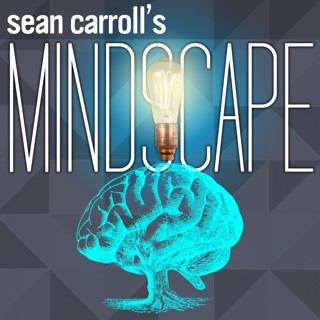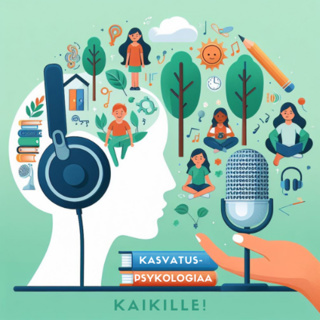
292 | Jonathan Birch on Animal Sentience
It's not immoral to kick a rock; it is immoral to kick a baby. At what point do we start saying that it is wrong to cause pain to something? This question has less to do with "consciousness" and more to do with "sentience" -- the ability to perceive feelings and sensations. Philosopher Jonathan Birch has embarked on a careful study of the meaning of sentience and how it can be identified in different kinds of organisms, as he discusses in his new open-access book The Edge of Sentience. This is an example of a question at the boundary of philosophy and biology with potentially important implications for real-world policies.Support Mindscape on Patreon.Blog post with transcript: https://www.preposterousuniverse.com/podcast/2024/10/14/292-jonathan-birch-on-animal-sentience/Jonathan Birch received his Ph.D. in the philosophy of science from the University of Cambridge. He is currently a Professor in the Department of Philosophy Logic and Scientific Method at the London School of Economics and Political Science (LSE). He is one of the authors of the New York Declaration on Animal Consciousness, and has advised the British government on matters of animal cruelty and sentience.Web siteLSE web pageGoogle scholar publicationsPhilPeople profileWikipediaSee Privacy Policy at https://art19.com/privacy and California Privacy Notice at https://art19.com/privacy#do-not-sell-my-info.
14 Loka 20241h 10min

AMA | October 2024
Welcome to the October 2024 Ask Me Anything episode of Mindscape! These monthly excursions are funded by Patreon supporters (who are also the ones asking the questions). We take questions asked by Patreons, whittle them down to a more manageable number -- based primarily on whether I have anything interesting to say about them, not whether the questions themselves are good -- and sometimes group them together if they are about a similar topic. Enjoy!Support Mindscape on Patreon.Blog post with questions and transcript: https://www.preposterousuniverse.com/podcast/2024/10/07/ama-october-2024/See Privacy Policy at https://art19.com/privacy and California Privacy Notice at https://art19.com/privacy#do-not-sell-my-info.
7 Loka 20244h 29min

291 | Venki Ramakrishnan on the Biology of Death and Aging
Aging and death happen to the best of us, but there are increasing efforts to do something about it. That effort requires that we have some reasonable understanding of why aging happens, and what processes are involved. You will be unsurprised to learn that it's complicated. Venki Ramakrishnan, who won the Nobel Prize for his work on the ribosome, investigates what we know about aging in his book Why We Die: The New Science of Aging and the Quest for Immortality. We talk about aging and death, and manage to get some thoughts in about ribosomes. Venki and many other great communicators will be speaking at New Scientist Live, which takes place at ExCeL London between 12 - 14 October 2024, and is also streamed live as well as on-demand.Support Mindscape on Patreon.Blog post with transcript: https://www.preposterousuniverse.com/podcast/2024/09/30/291-venki-ramakrishnan-on-the-biology-of-death-and-aging/Venkatraman (Venki) Ramakrishnan received his Ph.D. in physics from Ohio University. He is currently Group Leader at the MRC Laboratory of Molecular Biology, Cambridge, England, and is a Fellow of Trinity College. He previously served as President of the Royal Society of London. He shared the Nobel Prize in Chemistry for his work uncovering the structure of the ribosome.Lab web pageNobel citationGoogle scholar publicationsWikipediaAmazon author pageSee Privacy Policy at https://art19.com/privacy and California Privacy Notice at https://art19.com/privacy#do-not-sell-my-info.
30 Syys 20241h 20min

290 | Hahrie Han on Making Multicultural Democracy Work
It's a wonder democracy works at all -- a collection of people with potentially different interests have to agree to abide by majority vote even when it goes against their desires. But as we know, it doesn't always work, and racial and ethnic tensions are one of its biggest challenges. Hahrie Han studies the ground-up workings of democracy, how people can come together to successfully enact change. In her new book Undivided: The Quest for Racial Solidarity in an American Church, she investigates an example where democracy apparently has worked remarkably well, and asks what lessons we can draw from it.Support Mindscape on Patreon.Blog post with transcript: https://www.preposterousuniverse.com/podcast/2024/09/23/290-hahrie-han-on-making-multicultural-democracy-work/Hahrie Han recieved her Ph.D. in political science from Stanford University. She is currently the Director of the SNF Agora Institute, the Stavros Niarchos Foundation Professor of Political Science, and Faculty Director of the P3 Research Lab at Johns Hopkins University. She was named the Social Innovation Thought Leader of the Year by the World Economic Forum, is a Fellow of the American Academy of Arts and Sciences, and gave the 2024 Tanner Lectures on Human Values at Harvard University, among other awards.Web siteJohns Hopkins web pageGoogle Scholar publicationsAmazon author pageSee Privacy Policy at https://art19.com/privacy and California Privacy Notice at https://art19.com/privacy#do-not-sell-my-info.
23 Syys 20241h 15min

289 | Cari Cesarotti on the Next Generation of Particle Experiments
As an experimental facility, the Large Hadron Collider at CERN in Geneva has been extraordinarily successful, discovering the Higgs boson and measuring multiple features of particle-physics interactions at unprecedented energies. But to theorists, the results have been somewhat frustrating, as we were hoping to find brand-new phenomena beyond the Standard Model. There is nothing to do but to keep looking, recognizing that we have to choose our methods judiciously. I talk with theoretical physicist Cari Cesarotti about what experimental results the modern particle physicist most looks forward to, and how we might eventually get there, especially through the prospect of a muon collider.Support Mindscape on Patreon.Blog post with transcript: https://www.preposterousuniverse.com/podcast/2024/09/16/289-cari-cesarotti-on-the-next-generation-of-particle-experiments/Cari Cesarotti received her Ph.D. in physics from Harvard University. She is currently a postdoctoral fellow at MIT. Her research is on particle phenomenology theory, with an eye toward experimental searches. Among her awards are the Sakurai Dissertation Award in Theoretical Physics from the American Physical Society and the Young Scientist Award at the 14th International Conference on the Identification of Dark Matter.Web siteMIT web pagePublications at inSpireSee Privacy Policy at https://art19.com/privacy and California Privacy Notice at https://art19.com/privacy#do-not-sell-my-info.
16 Syys 20241h 21min

288 | Max Richter on the Meaning of Classical Music Today
It wasn't that long ago, historically speaking, that you might put on your tuxedo or floor-length evening gown to go out and hear a live opera or symphony. But today's world is faster, more technologically connected, and casual. Is there still a place for classical music in the contemporary environment? Max Richter, whose new album In a Landscape releases soon, proves that there is. We talk about what goes into making modern classical music, how musical styles evolve, and why every note should count.Support Mindscape on Patreon.Blog post with transcript: https://www.preposterousuniverse.com/podcast/2024/09/09/288-max-richter-on-the-meaning-of-classical-music-today/Max Richter trained in composition and piano at Edinburgh University, at the Royal Academy of Music, and with Luciano Berio in Florence. He was a co-founder of the ensemble Piano Circus. His first solo album, "Memoryhouse," was released in 2002. He has since released numerous solo albums, as well as extensive work on soundtracks for film and television, ballet, opera, and collaborations with visual artists.Web siteYouTubeSpotifyWikipediaSee Privacy Policy at https://art19.com/privacy and California Privacy Notice at https://art19.com/privacy#do-not-sell-my-info.
9 Syys 20241h 6min

AMA | September 2024
Welcome to the September 2024 Ask Me Anything episode of Mindscape! These monthly excursions are funded by Patreon supporters (who are also the ones asking the questions). We take questions asked by Patreons, whittle them down to a more manageable number -- based primarily on whether I have anything interesting to say about them, not whether the questions themselves are good -- and sometimes group them together if they are about a similar topic. Enjoy!Blog post with AMA questions and transcript: https://www.preposterousuniverse.com/podcast/2024/09/02/ama-september-2024/See Privacy Policy at https://art19.com/privacy and California Privacy Notice at https://art19.com/privacy#do-not-sell-my-info.
2 Syys 20243h 50min

287 | Jean-Paul Faguet on Institutions and the Legacy of History
One common feature of complex systems is sensitive dependence on initial conditions: a small change in how systems begin evolving can lead to large differences in their later behavior. In the social sphere, this is a way of saying that history matters. But it can be hard to quantify how much certain specific historical events have affected contemporary conditions, because the number of variables is so large and their impacts are so interdependent. Political economist Jean-Paul Faguet and collaborators have examined one case where we can closely measure the impact today of events from centuries ago: how Colombian communities are still affected by 16th-century encomienda, a colonial forced-labor institution. We talk about this and other examples of the legacy of history.Support Mindscape on Patreon.Blog post with transcript: https://www.preposterousuniverse.com/podcast/2024/08/26/287-jean-paul-faguet-on-institutions-and-the-legacy-of-history/Jean-Paul Faguet received a Ph.D. in Political Economy and an M.Sc. in Economics from the London School of Economics, and an Master of Public Policy from the Kennedy School of Government at Harvard. He is currently Professor of the Political Economy of Development at LSE. He serves as the Chair of the Decentralization Task Force for the Initiative for Policy Dialogue. Among his awards are the W.J.M. Mackenzie Prize for best political science book.Web pageGoogle Scholar publicationsWikipediaAmazon author page"Encomienda, the Colonial State, and Long-Run Development in Columbia," J.P. Faguet, C. Matajira, and F. Sánchez.See Privacy Policy at https://art19.com/privacy and California Privacy Notice at https://art19.com/privacy#do-not-sell-my-info.
26 Elo 20241h 32min





















